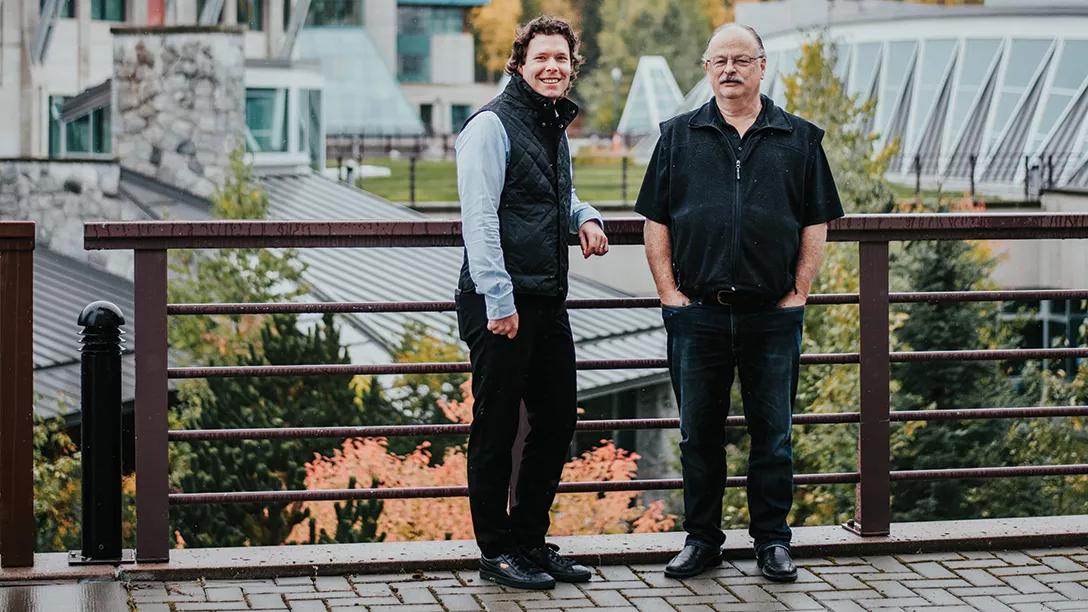Strengthening Indigenous mental wellness
A $1.5 million collaboration is supporting sustainable interventions for Elders.

Healthy individuals rooted in healthy communities is the focus of a unique Indigenous research partnership more than a decade in the making.
Thanks to collaboration between UNBC and Carrier Sekani Family Services, Drs. Henry Harder and Travis Holyk are undertaking a five-year project to help strengthen mental wellness and suicide prevention for Elders. The project received $1.5 million from the Institute of Indigenous Peoples' Health, part of the Canadian Institutes of Health Research.
The research builds on the scientists’ previous work with regional First Nations communities and stakeholders that first began in 2005, which saw them examine mental health wellness in Indigenous youth and young adults.
“This research, from its inception, has been community-led, and it was our communities that indicated that mental health and suicide prevention needed to be addressed,” said Holyk, Executive Director Research, Primary Care and Strategic Services, CSFS, and Adjunct Professor at UNBC. “The work to date has supported our organizational vision of providing services throughout the life cycle, and this next phase will help complete the continuum as we seek to develop sustainable interventions for Elders.”
The project will develop tools and activities that help further increase community mental wellness and improve access to interventions across the life course with a specific focus on Elders. It will also implement and evaluate interventions across member nations of Carrier Sekani Family Services and share materials created through the study with other First Nations communities.
“The motivation for our ongoing work has been to provide support and assistance to communities that are often underserved. There is a huge gap of psychological services in the North,” said Harder, a Psychology and Health Sciences Professor, and Dr. Donald B. Rix BC Leadership Chair for Aboriginal Environmental Health.
“We are looking at ways to empower First Nations communities to look at what services they themselves can provide to be of assistance to their fellow community members and to help make their communities healthier places to be, emotionally and psychologically as well as physically.”